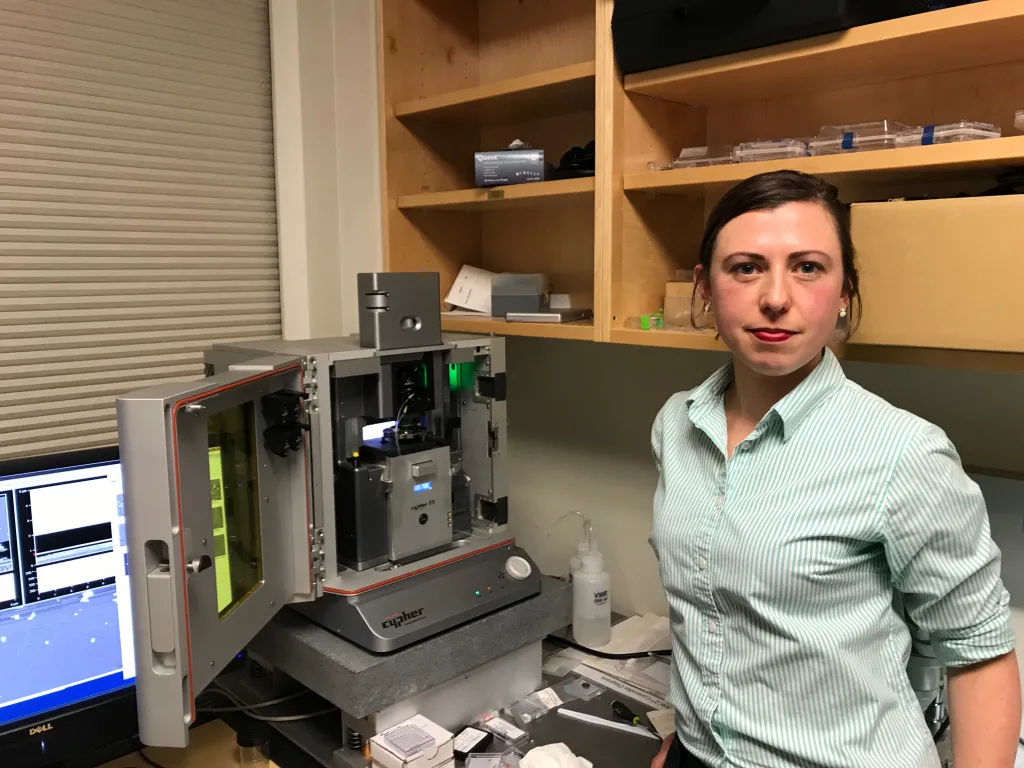UNE among institutions receiving $6M to develop protein sensors for biomanufacturing

The University of New England has been included in a near $6 million EPSCoR grant from the National Science Foundation (NSF) to the University of New Hampshire (UNH) to develop sensors for supporting quality control in biomanufacturing and biotechnology.
Eva Rose Balog, Ph.D., associate professor and assistant academic director of the School of Mathematical and Physical Sciences, will represent UNE on an interdisciplinary team of researchers led by Jeffrey Halpern, Ph.D., associate professor of chemical engineering at UNH and principal investigator on the grant.
Auburn University, the University of Wyoming, and the University of Maine are also partners on the research project, which will consist of four collaborative projects focusing on sensor components. The components will be integrated into a single sensor device in Halpern’s Surface Enhanced Electrochemical Diagnostic Sensors (SEEDS) Lab.
Biomanufacturing is a growing sector of the economy. According to Balog, the NSF grant will allow the researchers to capitalize on the sector’s growth and make further advances.
“Maine’s bioscience community is growing, manufacturing is changing in innovative ways, and the potential of protein engineering is being realized — it’s a very exciting time to receive this support for our research,” she remarked. “The technology we are proposing to develop and the discoveries we make along the way should benefit many different processes.”
The research will also help promote skilled biotechnology workforces in New Hampshire, Alabama, Maine, and Wyoming through academic and industry partnerships and internship opportunities.
“This work is extremely collaborative and applied,” Balog said. “University researchers and students and industry partners will be communicating from the very beginning and throughout the project to make sure the designs fit the needs and to come up with creative solutions together.”
